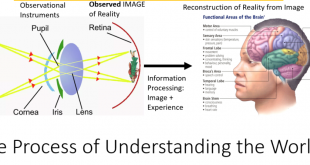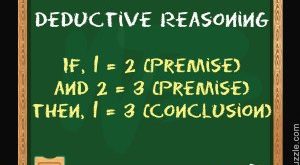from Lars Syll Mainstream macroeconomics can only progress if it gets rid of the DSGE albatross around its neck. It is better to do it now than to wait for another 20 years because the question is not whether but when DSGE modeling will be discarded. DSGE modeling is a story of a death foretold … Getting rid of DSGE models is critical because the hegemonic DSGE program is crowding out alternative macro methodologies that do work … DSGE practitioners, who with a mixture of bluff and...
Read More »Weekend Read – Flawed foundations of social sciences
from Asad Zaman While the car is functioning well, one does not usually open up the engine. But when the car breaks down, it becomes necessary to open it up to see what is wrong. This is the situation today, as the failure of econometric models manifested itself in the global financial crisis, as well as many other occasions. The tragedy is that these same failed models continue to be used today; no serious alternatives have been developed. The reason for this is that the methodology used...
Read More »Income inequality, USA, 1951-2019
Bayesianism — a patently absurd approach to science
from Lars Syll Mainstream economics nowadays usually assumes that agents that have to make choices under conditions of uncertainty behave according to Bayesian rules (preferably the ones axiomatised by Ramsey (1931), de Finetti (1937) or Savage (1954)) — that is, they maximise expected utility with respect to some subjective probability measure that is continually updated according to Bayes theorem. If not, they are supposed to be irrational, and ultimately — via some “Dutch book” or...
Read More »Why are most textbooks still proprietary?
from Blair Fix Today a rant about textbooks. Every year governments spend billions of dollars on public education, teaching students knowledge that was itself created by publicly funded research. Yet each year, university students must pay anew for this information by purchasing high-priced textbooks. It needn’t be this way. Most university textbooks are written by tenured (or tenure-track) professors. These are people who are paid by the public to generate and disseminate knowledge....
Read More »Neo-Ricardian economics — rigorous and totally irrelevant
from Lars Syll I claim that Sraffian economics, however rigorous in its use of the simultaneous equations method … is irrelevant to our understanding of the real world and, judging by its failure to draw any policy implications, is largely irrelevant to the major concerns of modern economists … This is not a judgment based simply on my opinion, which is ultimately no better than yours. Relevance is not a matter for individual opinion but a social judgment of the community of professional...
Read More »The roaring revival of political economy
from Hardy Hanappi and Real-World Economics Review For human societies, contrary to other species, the direction of their development is always co-determined by the way that their members produce a shared interpretation of their environment in order to achieve a common goal[1]. How to find a commonly shared view of our global society has become increasingly difficult in the decades since 1945. One reason certainly is the development of the global production system itself, which rapidly...
Read More »Take a tour of CO2 since 800,000 years ago
Take a tour of CO2 since 800 thousand years ago. pic.twitter.com/PJonTpxrQI — Kris Karnauskas (@OceansClimateCU) December 4, 2019
Read More »On the use of logic and mathematics in economics
from Lars Syll Logic, n. The art of thinking and reasoning in strict accordance with the limitations and incapacities of the human misunderstanding. The basic of logic is the syllogism, consisting of a major and a minor premise and a conclusion – thus: Major Premise: Sixty men can do a piece of work sixty times as quickly as one man. Minor Premise: One man can dig a post-hole in sixty seconds; Therefore- Conclusion: Sixty men can dig a post-hole in one second. This may be called syllogism...
Read More »Weekend Read – Energizing exchange: Learning from econophysics’ mistakes
from Blair Fix Let’s talk econophysics. If you’re not familiar, ‘econophysics’ is an attempt to understand economic phenomena (like the distribution of income) using the tools of statistical mechanics. The field has been around for a few decades, but has received little attention from mainstream economists. I think this neglect is a shame. As someone trained in both the natural and social sciences, I welcome physicists foray into economics. That’s not because I think their approach is...
Read More » Real-World Economics Review
Real-World Economics Review






